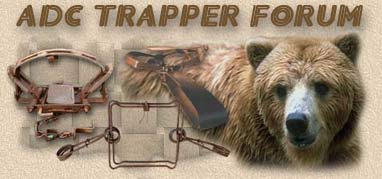MAJOR VICTORY FOR WCOs IN CALIFORNIA !!!!
California Governor Jerry Brown vetoed SB1480, a bill to regulate trapping and WCOs in California .
Had this bill passed, it would have shut the door on just about anyone who wished to provide nuisance wildlife
control services, regardless of your business model. The bill was supported by numerous animal rights
organizations.
Senate Bill 1480 cast pest and wildlife management professionals performing problem animal trapping services
in a very poor light, suggesting that in many cases they were simply unprofessional conmen who are not even
permitted to carry out the work in the first place and that government officials should really be performing the
job.
Under the bill, pest and wildlife management professionals would have been prohibited from soliciting wildlife
control business from the public for reasons of health and safety. Since the bill did not define “reasons of health
and safety” companies could have been in violation of the law for simply explaining or outlining the risks of an
animal infestations. For example, mentioning to customers that squirrels may chew wires or that feeding animals
could lead to serious problems would have been prohibited.
Moreover, pest and wildlife management professionals must provide customers with a contract containing
specific language, much of which is biased against animal trapping. The contract includes language at the top of
the contract stating: “It is only lawful to trap wildlife for a profit in California if damage to crops or property has
occurred. Animals posing a risk to human health or safety may only be taken by specified government officials.”
A homeowner with a raccoon in his or her attic may fear for their safety and that of their family and this sentence
implies that they should be contacting the government not a private pest or wildlife management company to
solve their problem.
Other language was contradictory and intended simply to confuse the prospective customer. One required
sentence says that all furbearing and nongame mammals legal to trap must be immediately killed or released. It
further states that unless released, trapped animals shall be killed by shooting where local ordinances,
landowners, and safety permit. This statement gives homeowners the impression that their disposition choices
are shooting the animal on their property or releasing it onsite, neither which would appeal to most homeowners.
Meanwhile, another required statement says that drowning, chest crushing, or injection with any chemical not
sold for the purpose of animal euthanasia are prohibited. The statement conveniently omits that is permissible to
euthanize nuisance wildlife in a CO2 chamber, which is perhaps the most common form of euthanasia practiced
by the industry. The "no drowning" language could have easily been interpreted to prohibit drowning sets,
underwater colony traps, etc.
There were numerous other provisions in the bill that were equally problematic. Since snakes do not normally
inflict property damage, a WCO would have been prohibited from capturing the snake or placing traps. More
troubling, the bill required that the CA DNR pass on all expenses related to implementing and admisnistrating
the new licensing system to the actual licensees. Anyone who set a trap, including employees, would have
been required to obtain a Class II license. Projected cost per license was expected to be $1,200.00 -
$1,500.00 and some estimates were as high as $2,000.00 -- ANNUALLY.
In short, the legislation was a thinly veiled effort to preclude private industry from performing wildlife
management services and shift such work to the government. Companies licensed by the Structural Pest
Control Board would have been exempted from obtaining a trapping license/permit from the Department of Fish
and Game for the trapping of rats, mice, voles, moles, or gophers. However, trapping services involving any
other nongame mammal – including squirrels, chipmunks, raccoons and skunks – would have been adversely
impacted by this bill.
In response to requests for assistance from their respective membership, NWCOA and NPMA led the
opposition to this bill since it was introduced. In the later stages, other trade groups and individual businesses
joined the opposition and sent direct correspondence to Governor Brown asking for his veto to this ill-conceived
legislation. In light of the opposition, Governor Brown signed the veto order.
NWCOA appreciates the efforts of its California members, and any others who responded to our letter writing
campaign and assisted in defeating this bill. Eventhough the battle was won this time, rest assured that more
legislation will be introduced next session and your continued support is necessary to fight in the future.
Thanks again!
A definite WIN for the good guys this time!!!!!



